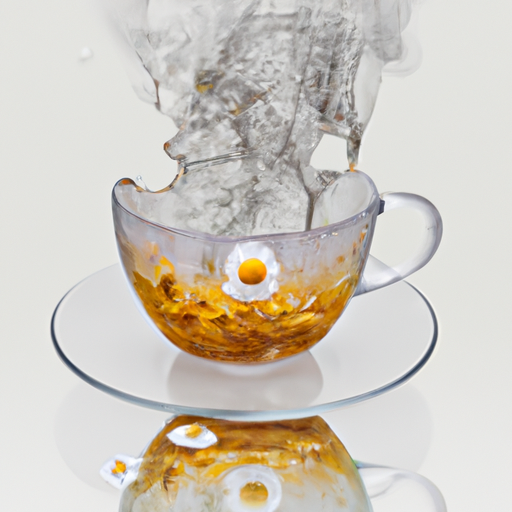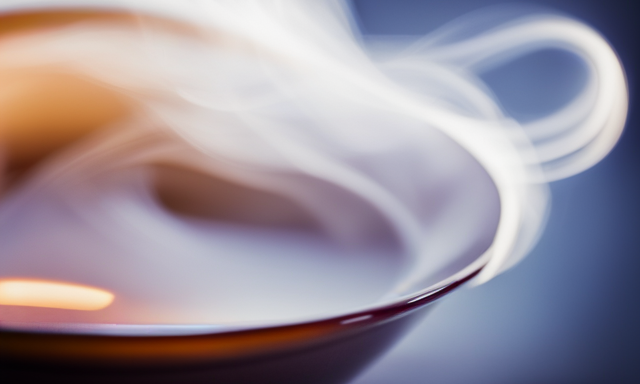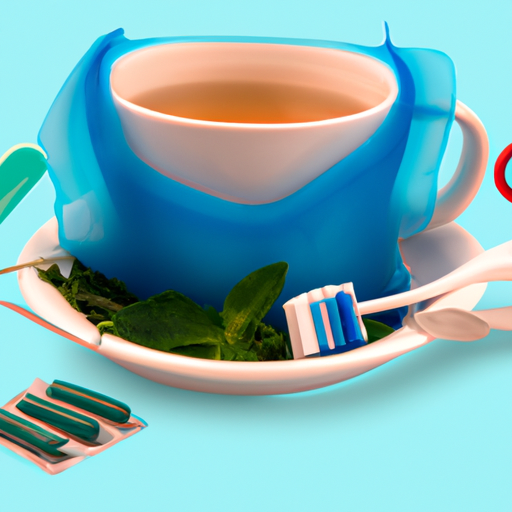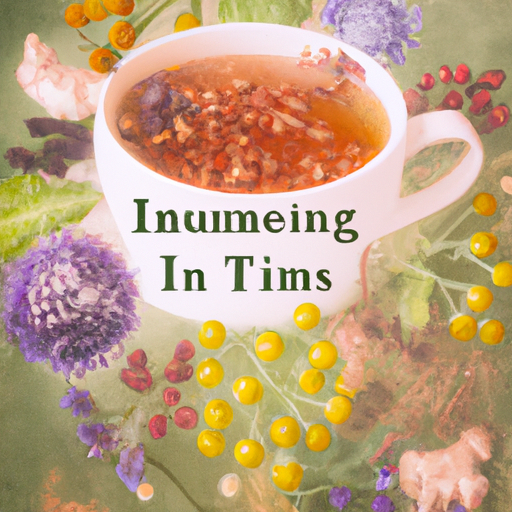So, you think you’re doing something good for your health by sipping on that herbal or chamomile tea every day? Well, hold on to your teacups, because I’m about to spill the tea on why drinking it so often might not be as beneficial as you think.
Sure, herbal and chamomile teas have long been touted as natural remedies for various ailments, but let’s not forget that even natural substances can have their downsides. In this article, we’ll explore some potential drawbacks of excessive tea consumption and shed light on why moderation is key.
From potential interactions with medications to digestive issues and upset stomach, there are several reasons why overindulging in herbal or chamomile tea might not be the best idea.
We’ll also delve into the risks of allergic reactions, disruptions in sleep patterns, and even the impact on iron absorption. And if that’s not enough to make you think twice, we’ll discuss the increased risk of bleeding associated with excessive tea intake.
But fear not, tea lovers! This article is not meant to discourage you from enjoying a soothing cup of herbal or chamomile tea. Rather, it aims to provide a balanced perspective and emphasize the importance of moderation and balanced consumption.
So, grab your mug and let’s explore the potential downsides of your beloved brew.
Key Takeaways
- Herbal and chamomile teas can have potential interactions with medications, especially blood thinners, anti-anxiety drugs, and sedatives.
- Regular consumption of herbal teas can lead to digestive issues, allergic reactions, and interfere with iron absorption, potentially exacerbating anemia.
- Excessive intake of herbal teas can increase the risk of bleeding, hypertension, and interfere with blood clotting, especially with certain herbal teas like ginger and ginkgo biloba.
- It is important to consult with a healthcare professional before regularly consuming herbal teas, especially if on medications or have underlying health conditions.
Potential Interactions with Medications
Drinking herbal or chamomile tea can be problematic because it may potentially interact with certain medications, resulting in unintended side effects. It’s important to be aware of these potential drug interactions and contraindications before consuming herbal tea regularly.
Some herbal teas, such as chamomile, can interact with medications like blood thinners, anti-anxiety drugs, and sedatives, leading to increased drowsiness or even excessive bleeding. Additionally, herbal teas may interfere with the absorption or metabolism of certain medications, reducing their effectiveness.
It’s crucial to consult with a healthcare professional or pharmacist to determine if any of the medications you’re taking could potentially interact with herbal teas. By understanding these potential interactions, you can make informed decisions about incorporating herbal tea into your daily routine.
Moving forward, let’s explore how herbal tea can also impact digestive issues and upset stomach.
Digestive Issues and Upset Stomach
Indulging in a cup of herbal or chamomile infusion may leave you with an unsettled stomach, akin to a stormy sea that churns and tosses with unpredictable waves. While herbal teas are generally considered safe, they can cause digestive issues and upset stomach in some individuals. One common complaint is acid reflux, where the stomach acid flows back into the esophagus, causing heartburn and discomfort. Additionally, herbal teas can lead to bloating, as they may stimulate the production of gas in the digestive system. To illustrate the discomfort that can arise from these digestive issues, imagine feeling a constant burning sensation in your chest or experiencing a bloated abdomen that makes you feel uncomfortably full. These symptoms can be distressing and interfere with daily activities. Transitioning into the subsequent section about ‘allergic reactions and sensitivities,’ it’s important to note that herbal teas can also trigger these unpleasant responses.
Allergic Reactions and Sensitivities
If you happen to have a sensitivity or allergy, certain herbal infusions can trigger unpleasant reactions in your body. Food allergies are fairly common, and chamomile tea, in particular, can cause allergic reactions in some individuals. Symptoms may include skin rashes, hives, itching, and even difficulty breathing.
These allergic reactions occur when the immune system mistakenly identifies certain compounds in chamomile as harmful. It’s important to note that allergic reactions to chamomile tea are rare, but if you have a known allergy to plants in the daisy family, such as ragweed or chrysanthemums, you may be more prone to developing a sensitivity to chamomile. This can lead to uncomfortable symptoms that can disrupt your daily life.
Moving on to the next section, let’s explore the effects of herbal tea on sleep patterns.
Effects on Sleep Patterns
Imagine yourself lying in a peaceful meadow, surrounded by the gentle whispers of a cool breeze, as a warm cup of herbal infusion gently lulls you into a blissful sleep. Herbal and chamomile teas are often recommended for their calming effects on the body, but it’s important to note their influence on REM sleep, the stage of sleep crucial for learning and memory consolidation.
While these teas may help you fall asleep faster, studies suggest that they can disrupt the natural sleep cycle by decreasing REM sleep duration. Additionally, consuming herbal or chamomile tea regularly may have long-term effects on sleep quality, potentially leading to decreased overall sleep duration and increased daytime sleepiness.
These findings highlight the importance of moderation when it comes to consuming herbal teas for sleep.
Transitioning to the next section, let’s explore the impact of herbal teas on iron absorption.
Impact on Iron Absorption
As you savor your cup of soothing infusion, be mindful of how it can potentially hinder the absorption of essential iron in your body. Herbal and chamomile teas contain compounds called tannins, which can bind to iron and form insoluble complexes, making it difficult for your body to absorb this important nutrient.
This can have implications on anemia, a condition characterized by low levels of iron in the blood. Iron is crucial for the production of red blood cells, which carry oxygen throughout the body. By inhibiting iron absorption, regular consumption of these teas can contribute to iron deficiency and exacerbate anemia.
It’s important to note that the impact on iron absorption may vary depending on the individual and their overall diet.
Now, let’s explore another potential concern – the increased risk of bleeding.
Increased Risk of Bleeding
Beware of your tea habit, as indulging too much can potentially open the floodgates to increased risk of bleeding. While herbal and chamomile teas are generally considered safe, excessive consumption may lead to adverse effects.
Studies suggest that high intake of herbal teas can increase the risk of hypertension, which in turn can contribute to a higher risk of bleeding. Additionally, certain herbal teas, such as ginger and ginkgo biloba, have been found to interfere with blood clotting, further increasing the chances of bleeding.
Moreover, some herbal teas can have an impact on liver function, potentially affecting the body’s ability to regulate blood clotting. It is important to approach herbal tea consumption with moderation and balanced consumption to avoid potential health risks.
Moderation and Balanced Consumption
To enjoy the benefits of herbal tea without any potential health risks, you should aim for moderation and a balanced approach to consumption. While herbal tea can offer various health benefits, it’s important to practice mindful consumption and be aware of the potential long-term effects.
Drinking herbal tea in excessive amounts can lead to certain health issues, such as liver damage, allergic reactions, and drug interactions. Therefore, it’s advisable to limit your intake and vary your tea choices to avoid overexposure to specific herbal compounds.
Additionally, it’s crucial to consult with a healthcare professional if you’re on any medications or have underlying health conditions. By practicing moderation and being aware of the potential risks, you can enjoy the soothing effects of herbal tea while maintaining your overall well-being.
Frequently Asked Questions
Can drinking herbal or chamomile tea interact with my medications?
Yes, drinking herbal or chamomile tea can interact with certain medications, potentially causing adverse effects. It’s important to consult with your healthcare provider to understand any potential interactions or side effects.
How does drinking herbal or chamomile tea affect my digestive system and can it cause an upset stomach?
Drinking herbal or chamomile tea can affect the digestive system, potentially causing an upset stomach. However, the extent of this effect varies among individuals. It’s important to monitor your body’s response and consult with a healthcare professional if necessary.
Are there any allergic reactions or sensitivities associated with drinking herbal or chamomile tea?
I have found that some people may experience allergic reactions or sensitivities to herbal or chamomile tea. It’s important to be aware of any potential allergies and to consult a healthcare professional if you have concerns.
Does drinking herbal or chamomile tea have any effects on sleep patterns?
Drinking herbal or chamomile tea can have a calming effect on anxiety and promote better sleep. Research suggests it may reduce cortisol levels, a hormone associated with stress.
Can drinking herbal or chamomile tea impact iron absorption in the body?
Drinking herbal or chamomile tea may impact iron absorption in the body. This can have a potential impact on anemia and increase the risk of nutrient deficiency.
Conclusion
In conclusion, while herbal or chamomile tea may seem like a soothing and natural choice, it’s important to be aware of its potential drawbacks. Like a double-edged sword, this herbal elixir can interfere with medications, upset our delicate digestive system, and even disrupt our precious sleep patterns.
Additionally, it can hinder iron absorption and increase the risk of bleeding. However, by practicing moderation and balancing our tea consumption, we can still enjoy the benefits without falling prey to its potential pitfalls.
So, let’s sip our tea with caution and mindfulness.










